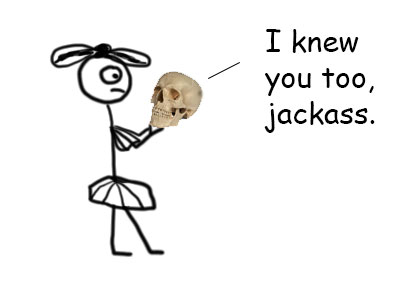
So there you are, editing away, and you see a quote with an error in it. Do you fix it, or not?
Ungrammatical Quotes
If there is a misspelled word, a missing word, or an obvious typo, and if you know the original text doesn’t have that mistake, you fix the error. For example, “I has a dream that my 4 little children will one day live in a nation where they will not be judged by the colour of their skin but by the content of their character” has three errors in it: has, 4, and colour. They should be fixed, even if you’re British (because MLK wasn’t).
If you’re not sure about the original text and can’t find it online, then it is the responsibility of the client/writer to double-check their source. Highlight the error, and leave a comment.
Get a free sample proofread and edit for your English document.
Two professional proofreaders will proofread and edit your English document.
Transcript Quotes
Many researchers record interviews and then make word-for-word transcripts. This often leads to quotes like this, “Yeah, yeah. I, you know, uh, we were looking at the fish. I think. Yeah, uh, they were really expensive. Yeah.”
The only time such a transcript would be appropriate is if the client/researcher is talking about speech patterns. Otherwise, the editor should clean that up so the person talking doesn’t sound idiotic. We all say “uh” and the like, and we all start and then restart a sentence from time to time. It’s not substantive. A good edit would be, “We were looking at the fish, I think. They were really expensive.”
Transcripts also often contain errors from mishearing the speaker on the audio/videotape. For example, the transcript will read, “You know I didn’t know that because I hadn’t been told about it,” and it’s clear that “you know” is an interjection. It should read, “You know, I didn’t know that because I hadn’t been told about it,” or better, “I didn’t know that because I hadn’t been told about it.”
Translated Quotes
We have two situations here. In the first, the client/writer has done the translation, which means you just edit the quote like everything else, taking care not to change the meaning.
We run into a problem when someone else has done the translating. If there is a published translation, check it against the original. If the translator is unknown, correct the error with a comment about why it’s wrong so the client/writer will trust you and not their translator.
Regardless of the case, you will particularly see problems here with idioms. Go ahead and change them:
Wrong: yelling at the top of their voice
Right: yelling at the top of their lungs
Wrong: on the other case
Right: on the other hand/in another case
Quotes with Profanities
This one is all about considering the audience. Clients will look to editors for judgment calls like this, and, of course, they can always reject our suggestions. It’s better to play it safe and offer f**k or [expletive] than to offend, especially if it’s an American audience.
The exception here is fiction. Fictional characters curse, so don’t be a prude.
Overly Long Quotes
Ah, the often abused ellipses!
The too-long quote is a big problem in academic papers, and I don’t just mean people who are looking to pad their paper to make the word count. Clients/academics are frequently concerned that the quote won’t support what they’re claiming without enough context or explanation. As the editor, your job is to pare down quotes if parts are irrelevant.
So, let’s say the client/academic claims that Hamlet is contemplating suicide but is too scared to actually do the deed. Then comes the quote:
To be, or not to be, that is the question:
Whether ‘tis nobler in the mind to suffer
The slings and arrows of outrageous fortune,
Or to take arms against a sea of troubles
And by opposing end them. To die—to sleep,
No more; and by a sleep to say we end
The heart-ache and the thousand natural shocks
That flesh is heir to: ‘tis a consummation
Devoutly to be wish’d. To die, to sleep;
To sleep, perchance to dream—ay, there’s the rub:
For in that sleep of death what dreams may come,
When we have shuffled off this mortal coil,
Must give us pause—there’s the respect
That makes calamity of so long life. (III, i)
Notice the length of the quote actually weakens the evidence by burying the important parts in so many words. A good edit would be:
To be, or not to be . . . ‘tis a consummation
Devoutly to be wish’d. To die, to sleep;
To sleep, perchance to dream—ay, there’s the rub:
For in that sleep of death what dreams may come
The ellipses (those three little dots) fill in for the lovely but, for our purposes here, unnecessary words, and an edit at the end stresses it’s the dreams (i.e., the experience of the afterlife) that he and mankind fear.

And If All Else Fails
If you’re really not sure if you should edit the quote, we editors have devised a cop-out. Just keep it as is and after the error put [sic], which is Latin for, “Not my problem, buddy.”
Julia H.
Get a free sample proofread and edit for your English document.
Two professional proofreaders will proofread and edit your English document.
Get a free sample proofread and edit for your document.
Two professional proofreaders will proofread and edit your document.
We will get your free sample back in three to six hours!